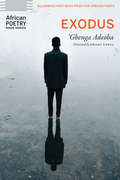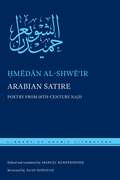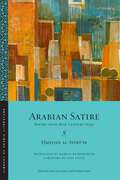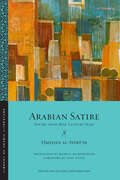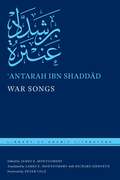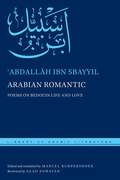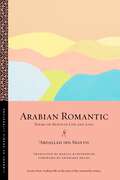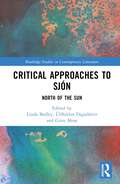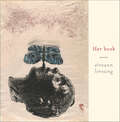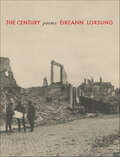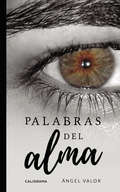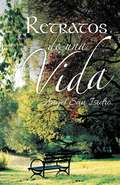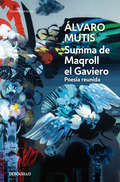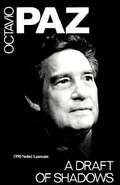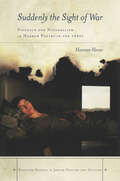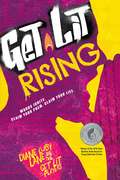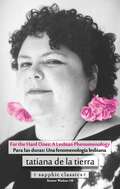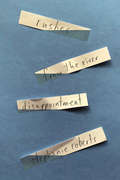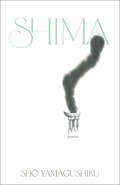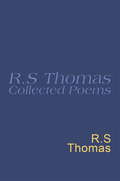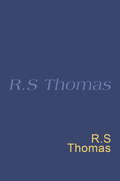- Table View
- List View
Exodus (African Poetry Book)
by ‘Gbenga AdeobaWinner of the Sillerman First Book Prize for African Poetry, &‘Gbenga Adeoba&’s collection Exodus focuses on forms of migration due to the slave trade, war, natural disasters, and economic opportunities. Using the sea as a source of language and metaphor, Adeoba explores themes of memory, transition, and the intersections between the historic and the imagined. With great tenderness and power his poetry of empathy searches for meaning in sharply constructed images, creating scenes of making and unmaking while he investigates experiences of exile and displacement across time and place.
Arabian Satire: Poetry from 18th-Century Najd (Library of Arabic Literature #49)
by Ḥmēdān al-ShwēʿirThis lively volume collects poems by Hmedan al-Shwe'ir, who lived in Najd in the Arabian Peninsula shortly before the hegemony of the Wahhabi movement in the early eighteenth century.A master of satire known for his ribald humor, self-deprecation, and invective verse (hija'), Hmedan was acerbic in his criticisms of society and its morals, voiced in in a poetic idiom that is widely referred to as “Nabati,” here a mix of Najdi vernacular and archaic vocabulary and images dating back to the origins of Arabic poetry. In Arabian Satire, Hmedan is mostly concerned with worldly matters, and addresses these in different guises: as the patriarch at the helm of the family boat and its unruly crew; as a picaresque anti-hero who revels in taking potshots at the established order, its hypocrisy, and its moral failings; as a peasant who labors over his palm trees, often to no avail and with no guarantee of success; and as a poet recording in verse how he thinks things ought to be.The poems in Arabian Satire reveal a plucky, headstrong, yet intensely socially committed figure—representative of the traditional Najdi ethos—who infuses his verse with proverbs, maxims, and words of wisdom expressed plainly and conversationally. Hmedan is accordingly quoted by historians of the Gulf region and in anthologies of popular sayings. This is the first full translation of this remarkable poet. A bilingual Arabic-English edition.
Arabian Satire: Poetry from 18th-Century Najd (Library of Arabic Literature #62)
by Ḥmēdān al-ShwēʿirSatirical verse on society and its hypocrisiesA master of satire known for his ribald humor, self-deprecation, and invective verse (hijāʾ), the poet Ḥmēdān al-Shwēʿir was an acerbic critic of his society and its morals. Living in the Najd region of the Arabian Peninsula, Ḥmēdān wrote in an idiom widely referred to as “Nabaṭī,” here a mix of Najdī vernacular and archaic vocabulary and images dating to the origins of Arabic poetry. In Arabian Satire, Ḥmēdān is mostly concerned with worldly matters and addresses these in different guises: as the patriarch at the helm of the family boat and its unruly crew; as a picaresque anti-hero who revels in taking potshots at the established order, its hypocrisy, and its failings; as a peasant who labors over his palm trees, often to no avail and with no guarantee of success; and as a poet recording in verse how he thinks things ought to be.The poems in Arabian Satire reveal a plucky, headstrong, yet intensely socially committed figure—representative of the traditional Najdī ethos—who infuses his verse with proverbs, maxims, and words of wisdom expressed plainly and conversationally. Ḥmēdān is widely quoted by historians of the Gulf region and in anthologies of popular sayings. This is the first full translation of this remarkable poet.An English-only edition.
Arabian Satire: Poetry from 18th-Century Najd (Library of Arabic Literature #62)
by Ḥmēdān Al-ShwēʿirSatirical verse on society and its hypocrisiesA master of satire known for his ribald humor, self-deprecation, and invective verse (hijāʾ), the poet Ḥmēdān al-Shwēʿir was an acerbic critic of his society and its morals. Living in the Najd region of the Arabian Peninsula, Ḥmēdān wrote in an idiom widely referred to as “Nabaṭī,” here a mix of Najdī vernacular and archaic vocabulary and images dating to the origins of Arabic poetry. In Arabian Satire, Ḥmēdān is mostly concerned with worldly matters and addresses these in different guises: as the patriarch at the helm of the family boat and its unruly crew; as a picaresque anti-hero who revels in taking potshots at the established order, its hypocrisy, and its failings; as a peasant who labors over his palm trees, often to no avail and with no guarantee of success; and as a poet recording in verse how he thinks things ought to be.The poems in Arabian Satire reveal a plucky, headstrong, yet intensely socially committed figure—representative of the traditional Najdī ethos—who infuses his verse with proverbs, maxims, and words of wisdom expressed plainly and conversationally. Ḥmēdān is widely quoted by historians of the Gulf region and in anthologies of popular sayings. This is the first full translation of this remarkable poet.An English-only edition.
أسواق الذهب
by أحمد شوقىقلْ لا أعرِف الرِّقّ، وتقيَّد بالواجب وتقيَّد بالحقّ؛ الحرية وما هِيَه؟ "الحُمَيراءُ" الغالية، فِتنةُ القرون الخالية، وطَلِبةُ النفوسِ العالية؛ غِذاءُ الطّبائع، ومادّةُ الشرائع، وأُمُّ الوسائل والذَّرائع؛ بنتُ العلم إذا عمّ، والخلق إذا تمّ، وربيبة الصبر الجميل والعمل الجمّ؛ الجهلُ يئدُها، والصغائرُ تُفسدُها، والفُرْقةُ تُبعدُها؛ تكبيرةُ الوجود، في أُذُن المولود؛ وتحية الدُّنيا له إذا وصل، وصيْحة الحياة به إذا نَصَل؛ هاتِفٌ منَ السماءِ يقولُ له: يا ابنَ آدم؛ حَسْبُكَ من الأسماءِ عبدُ الله وسيّدُ العالَم، وهي القابلة التي تستقبله، ثم تسرُّهُ وتُسَرْبلُه، وهي المهدُ والتميمَة، والمُرضعُ الكريمة، المنجبة كـ "حليمة". ألبانُها حياة، وأحضانُها جنَّات. وأنفاسُها طيِّبات. العزيزُ من وُلدَ بين سَحْرِها ونَحْرها، وتعلق بصدرِها، ولعِبَ على كَتِفها وحِجرها، وترعرعَ بين خِدرها وسِترها.. ضجيعةُ موسى في التابوت، وَجاوَرَتْه في دار الطاغوت، والعصا التي توكأ عليها، والنَّارُ التي عشَا إليها، جبلّةُ المَسيح، السِّيدِ السَّميح، وإنجيلُه، الذي حاربُه جيلُه، وسَبيلُه، الذي جانَبَهُ قَبيلُه، طِينةُ محمدٍ عن نفسِه، عن قومِه، عن أمسِه، عن يومه، أنسابٌ عالية، وأحسابٌ زاكية، وملوكٌ بادية، لم يَدنهم طاغية، وهي رُوحُ بيانِه، ومُنحدَر السُّوَر على لسانِه، الحرِّية، عقدُ الملك، وعهدُ المَلْك، وسًكان الفُلْك، يدُ القلم، على الأمم، ومِنحة الفكر، ونفحة الشعر وقصيدة الدهر، لا يُستَعْظَمُ فيها قرْبان، ولو كان الخليفة عثمان بن عفان، جنينٌ يحمَلُ به في أيام المحْنَة، وتحتَ أفياء الفتنة، وحينَ البغي سيرة السَّامَّة ، والعدوان وتيرة العامَّة، وعندَما تناهى غفلة السواد، وتفاقم عَبث القوَّاد، وبين الدَّم المطلول، والسيف المسلول، والنظم المحلول، وكذلك كان الرُّسلُ يولدون عندَ عموم الجهالة، ويُبعثون حين طمُوم الضلالة؛ فإذا كَملَتْ مدَّتُه. وطلَعتْ غُرَّتهُ، وسطعَتْ أُسِرَّتُه، وصحَّتْ في المهد إمرتُه، بدّلت الحالَ غيرَ الحال، وجاءَ رجالٌ بعدَ الرِّجَال؛ دينٌ ينفسحُ للصادقِ والمنافق، وسوقٌ يتَّسع للكاسِد والنَّافق، مولودٌ حمْلُهُ قرُون، ووضعُهُ سِنُون، وحَداثتُه أشغالٌ وشئون، وأهوالٌ وشجون، فرحِمَ الله كلَّ من وطَّأ ومهَّد، وهيَّأ وتعهَّد، ثم استشهدَ قبلَ أن يشهَد. إذا أحرزت الأُممُ الحرِّيَّة أتت السيادةُ من نفسِها، وسعت الإمارةُ على رأسِها، وبُنِيَت الحضارةُ من أُسِّها؛ فهي الآمرُ الوازع، القليلُ المُنازِع، النبيلُ المشاربِ والمَنَازع؛ الذي لا يتخذ شِيعة، ولا صنيعة، ولا يَزْدهي بخديعة؛ خازنٌ ساهر، وحاسبٌ ماهر؛ دانقُ الجماعة بذمةٍ منهُ وأمان، ودِرْهَمُهم في حِرْزهِ دِرْهَمَان. "فيا ليلى" ماذا مِن أترَاب، وارَيْتِ التراب؟ وأخدان، أسلمتِ للديدان؟ عُمَّالٌ للحق عُمَّار، كانوا الشُّموسَ والأقمار، فأصبحوا على أفواه الرُّكَّاب والسُّمار؛ وأين قيسُك المعولِ؟ ومجنونُك الأوَّل؟ حائطُ الحقُّ الأطوَل، وفارسُ الحقيقةِ الأجوَل؛ أين مصطفى؟ زينُ الشباب، ورَيْحان الأحباب. وأوَّلُ من دَفع الباب، وأبرزَ النَّاب، وزأرَ دون الغاب؟...
أميرة الأندلس
by أحمد شوقى"الملك نشوان ومعه مضحكه مقلاص يدنو من زورق على الوادي الكبير فيثب فيه ويقول" الملك : انظر يا مقلاص إلى هذا الزورق ما ألطفه، صدق القول: كل صغير لطيف. مقلاص : إلا وظيفتي في قصرك فإنها لا لطيفة ولا شريفة، وإن هذا الزورق قد ينقلب فيأخذ شكل النعش، ولن يكون النعشُ لطيفًا أبدًا. الملك : هبه انقلب يا مقلاص فصار نعشًا، أليس النعشُ مركبَ كل حي وإن طالتْ سلامته! مقلاص : أما أنا فيعفيني الملك. الملك : لا يا مقلاص لا أعفيك، ولا أحسبك تدعني أسير في لجة النهر وحدي وأنا كما تراني نشوان. مقلاص : وإن كان ولابد أيها الملك فإني أقترح.. الملك : وما تقترح؟ مقلاص : أن أكون أنا المجدِّفَ وحدي. الملك : ولماذا؟ مقلاص : الأمر بيِّن! التيار مجنون، والسكر مجنون، وأنت سلطان وكل سلطان مجنون. وهذا الزورق خشبة لا عقل لها فهو أيضًا مجنون؛ وإني أربأ بحياتي أيها الملك أن أجمع عليها مجانين أربعة. الملك : (مستضحكًا) لا يكون إلا ما اقترحتَ يا مقلاص، تعال اركب وجدف وحدك واترك لي أنا الدفة. مقلاص : أما هذا فنعم. وإني أرجو أن تكون دفة هذا المركب الصغير أحسن مصيرًا في يديك من دفة المملكة. الملك : (مستضحكًا) تعال ثب؛ هات يدك. (مقلاص ينزل إلى الزورق ويأخذ المجدافين). الملك : انظر يا مقلاص وراءك، إني أرى قاربًا يندفع نحونا مسرعًا كأنه حوت مطارد مذعور. مقلاص : هو ذا قد دنا منا يا مولاي، فأحسن مسك الدفة واجتنب الصدمة، وأنا أزوده عنا بمجدافي هذا وأضربه ضربة تقذف به إلى الشاطئ الآخر من النهر. الملك : إياك أن تفعل بل ائسره، فلابد لنا أن نؤدب هذا الشاب المغرور، فإني أرى الملاح فتى كريم الهيئة فهو لاشك من أبناء أعيان أشبيلية. (يصطدم الزورقان ويظهر مقلاص ارتباكًا وجبنًا، فيقبض الملك على الزورق المهاجم بيد قوية ويقول لمقلاص) الملك : اقذف الآن به إن استطعت إلى الشاطئ الآخر من النهر (ثم يلتفت إلى الشاب الملاح ويقول) مكانك أيها الغلام الوقاح، ما هذه الجرأة على التيار وعلى شبابك هذا الغض النضير! وما غرك بالملك حتى قربت عودك من عوده تريد أن تأخذ عليه الطريق. الملاح : مولاي إن الرعية يهفون، وإن الملوك يعفون، وزورقي إنما اندفع بقوة التيار القاهر فوافق مرور مركبك المحروس، فكان ما كان مما أعتذر للملك منه. الملك : (بصوت منخفض) ويح أُذني ماذا تسمع؟ هذا الصوت أعرفه؟ (ثم يلتفت إلى الملاح قائلاً): قد عرفت أيها الفتى من نحن، فعرفنا بنفسك. (يرفع الملاح قناعه) الملك : (صائحًا) بثينة! الأميرة : (الملاح) أجل أيها الملك ابنتك وأمتك بثينة. الملك : عجبًا! أأنتِ هنا بين العبب والتيار، وعلى هذا العود الذي يشفق أبوك من ركوبه، وأبوك من تعلمين أشجع العرب قلبًا؟ الأميرة : ولم لا تكون ابنة الملك شجاعة القلب مثله! إن الأسد لا يلد إلا اللباة. الملك : (يهدأ غضبه) ومن أين مجيئكِ الساعة يا بثينة؟
War Songs (Library of Arabic Literature #11)
by ʿAntarah ibn ShaddādPoems of love and battle by Arabia’s legendary warrior From the sixth-century highlands of Najd in the Arabian peninsula, on the eve of the advent of Islam, come the strident cries of a legendary warrior and poet. The black outcast son of an Arab father and an Ethiopian slave mother, 'Antarah ibn Shaddad struggled to win the recognition of his father and tribe. He defied social norms and, despite his outcast status, loyally defended his people. 'Antarah captured his tumultuous life in uncompromising poetry that combines flashes of tenderness with blood-curdling violence. His war songs are testaments to his life-long battle to win the recognition of his people and the hand of 'Ablah, the free-born woman he loved but who was denied him by her family. War Songs presents the poetry attributed to 'Antarah and includes a selection of poems taken from the later Epic of 'Antar, a popular story-cycle that continues to captivate and charm Arab audiences to this day with tales of its hero’s titanic feats of strength and endurance. 'Antarah’s voice resonates here, for the first time in vibrant, contemporary English, intoning its eternal truths: commitment to one’s beliefs, loyalty to kith and kin, and fidelity in love.A bilingual Arabic-English edition.
Arabian Romantic: Poems on Bedouin Life and Love (Library of Arabic Literature #33)
by ʿAbdallāh ibn SbayyilLove poems from late nineteenth-century Arabia Arabian Romantic captures what it was like to live in central Arabia before the imposition of austere norms by the Wahhabi authorities in the early twentieth century: tales of robbery and hot pursuit; perilous desert crossings; scenes of exhaustion and chaos when water is raised from deep wells under harsh conditions; the distress of wounded and worn-out animals on the brink of perdition; once proud warriors who are at the mercy of their enemy on the field of battle. Such images lend poignancy to the suffering of the poet’s love-stricken heart, while also painting a vivid portrait of typical Bedouin life. Ibn Sbayyil (ca. 1853–1933), a town dweller from the Najd region of the Arabian Peninsula, was a key figure in the Nabati poetic tradition. His poetry, which is still recited today, broke with the artifice of the preceding generation by combining inherited idiom and original touches reflecting his environment. Translated into English for the first time by Marcel Kurpershoek, Arabian Romantic will delight readers with a poetry that is direct, fluent, and expressive, and that has entertained Arabic speakers for over a century.A bilingual Arabic-English edition.
Arabian Romantic: Poems on Bedouin Life and Love (Library of Arabic Literature #69)
by ʿAbdallāh ibn SbayyilScenes from Arabian life at the turn of the twentieth centuryArabian Romantic captures what it was like to live in central Arabia before the imposition of austere norms by the Wahhabi authorities in the early twentieth century: tales of robbery and hot pursuit; perilous desert crossings; scenes of exhaustion and chaos when water is raised from deep wells under harsh conditions; the distress of wounded and worn-out animals on the brink of perdition; once proud warriors who are at the mercy of their enemy on the field of battle. Such images lend poignancy to the suffering of the poet’s love-stricken heart, while also painting a vivid portrait of typical Bedouin life.Ibn Sbayyil, a town dweller from the Najd region of the Arabian Peninsula, was a key figure in the Nabaṭī poetic tradition. His poetry, which is still recited today, broke with the artifice of the preceding generation by combining inherited idiom and original touches reflecting his environment. Translated into English for the first time by Marcel Kurpershoek, Arabian Romantic will delight readers with a poetry that is direct, fluent, and expressive, and that has entertained Arabic speakers for over a century.An English-only edition.
Critical Approaches to Sjón: North of the Sun (Routledge Studies in Contemporary Literature)
by Linda Badley Úlfhildur Dagsdóttir Gitte MoseCritical Approaches to Sjón: North of the Sun is the first English-language book-length study of the works of the Icelandic contemporary poet Sjón (Sigurjón Birgir Sigurðsson, b. 1962), who is considered by some to be Iceland’s most distinctive and multifaceted contemporary author. This collection of essays introduces readers to Sjón’s rich body of writing and its transmedial and stylistic range, cultural breadth, thematic diversity, and intellectual depth. Essays in the volume have been brought together from around the world and cover Sjóns's beginnings as a neo-surrealist performance artist and poet (translated into over 20 languages), his career as a novelist (translated into over 30 languages), and his collaborations with translators, singer-songwriters, film directors, and other writers. Approaches range from the narratological, historical, ethical, epistemological, and mythological to theoretical methodologies such as thing theory, queer theory, disability studies, and ecocriticism.
Relative Chronology in Early Greek Epic Poetry
by Øivind Andersen Dag T. T. HaugThis book sets out to disentangle the complex chronology of early Greek epic poetry, which includes Homer, Hesiod, hymns and catalogues. The preserved corpus of these texts is characterised by a rather uniform language and many recurring themes, thus making the establishment of chronological priorities a difficult task. The editors have brought together scholars working on these texts from both a linguistic and a literary perspective to address the problem. Some contributions offer statistical analysis of the linguistic material or linguistic analysis of subgenres within epic, others use a neoanalytical approach to the history of epic themes or otherwise seek to track the development and interrelationship of epic contents. All the contributors focus on the implications of their study for the dating of early epic poems relative to each other. Thus the book offers an overview of the current state of discussion.
Her book: Poems
by Éireann Lorsung&“Exacting, and at the same time utterly magical." —ADA LIMÓNWith intelligence and crystalline clarity, a chorus of female voices speaks through the poems in Her book, Éireann Lorsung&’s luminous second collection.Full of youth, wonder, and imagination, Her book crosses distances and generations to celebrate the lives of women, their individual and shared experiences, and the bonds that bring them together. This is also a book about translation (of experience into art, of knowledge across time and space), conversation (with, for instance, work by the artist Kiki Smith), and friendship (especially those made during Lorsung&’s time in England). In these poems, the female body rises from a foundation of stars. Songbirds are cut from paper and stormy light. And letters arrive, and disappear, mysteries contained within.&“Part ecstatic recollection of the many ways places and objects leave their indelible marks upon our bodies and brains, and part timeless ode to the strange female beast that pounds inside of us all&” (Ada Limón), Her book is both an inspired work from Lorsung and, fundamentally, her book—poems belonging to all women.
The Century: Poems
by Éireann LorsungA meticulously detailed catalogue of ordinary people performing acts of extraordinary violence, The Century charts an awakening to structures of dominance and violence. In the tradition of witness poetry, The Century tugs apart the quotidian horrors required to perpetuate acts of violence like the Holocaust, the deployment of nuclear weapons in Japan and Iraq, American slavery and its lingering aftermath. When Éireann Lorsung writes of death and dying, of “bodies in the fields becoming the fields,” it’s the simplicity that’s most haunting. After a fire, “some of their skin moved off of them as they ran, a very / simple melting…” But these poems don’t just witness; they also resist and serve as models for resistant lives. Pushing back against form and grammar, constructions of time and geography, Lorsung traces decades of technological, geopolitical, and cultural shifts through generations and across continents as networks of dominance continue to be stubbornly upheld. The Century is evasive but thorny, splintering in the mind. This collection is a reminder that the arrival of each new century, decade, or year brings with it an invitation to join ongoing movements of resistance, air pockets of hope in the waters that we all swim or drown in.
Palabras del alma
by Ángel ValorIntenta vivir cumpliendo sueños, y sueña viviendo que los consigues. Hablarse a sí mismo es un hecho que cada vez valoramos menos. La autocrítica, el sentir deliberadamente y no condicionado... Permitidme que os dé mi más humilde opinión al respecto. En cada página que expongo a continuación podréis revivir vivencias,sentiros identificados por algún suceso personal o cercano que haya transcurrido o transcurra actualmente en vuestras vidas. Pero siempre con la firme intención de proporcionar la capacidad del libre albedrío del pensamiento. No pretendo contar mis historias, sino que a través de mis historias seáis capaces de rememorar o sentir las vuestras al leerme. Sencillamente, el sentimiento nunca muere.
Retratos de una vida
by Ángel San IsidroSus poemas surgen de la nada, son como las figuras que representan todo lo que en alguna medida nos es cotidiano, y el espíritu del poeta busca afanoso los versos que le llueven del cielo para deslizarse por su pluma y escribir lo que la vida y sus sentimientos le sugieren. Quiero dedicar este libro de poemas muy especialmente, a la persona que desde el día en que escribí mi primer poema siempre ha estado y está presente en mi nueva faceta de escritor de versos y constructor de poemas y relatos, gracias a ella mi vida dio un giro rotundo en mi devenir poético y artístico, esta persona se llama, María Covadonga y fue mi mujer.
Summa de Maqroll el Gaviero
by Álvaro MutisEn Maqroll el Gaviero, «esta especie de otro yo que escribe mis cosas», habita la obra poética de Álvaro Mutis. <P><P>Por los poemas que presentamos yerra su carácter fabuloso, el torrente de lo vivo y lo imaginario, la voz que canta al viaje, que recrea las batallas y las vidas de otros hombres, que recoge los vestigios del amor, que zarpa a la muerte, una voz casi ancestral que celebra la maravilla perdida. <P><P>Liberados de ataduras formales y de género, los versos de Álvaro Mutis dan fe del inesperado prodigio que obran las palabras, como apunta el poema que cierra el volumen, en manos de «infatuados tribunos ávidos de un poder hecho de sombra y desventura.»
A Draft of Shadows and other Poems`
by Elizabeth Bishop Octavio Paz Mark Strand translations by Eliot WeinbergerThis book is a bilingual collection of Paz's poems. Throughout this book the poet's abiding concern for language as a living force is revealed.
Suddenly, the Sight of War: Violence and Nationalism in Hebrew Poetry in the 1940s
by Hannan Hever translated by Lisa KatzSuddenly, the Sight of War is a genealogy of Hebrew poetry written in Israel between the beginning of World War II and the War of Independence in 1948. In it, renowned literary scholar Hannan Hever sheds light on how the views and poetic practices of poets changed as they became aware of the extreme violence in Europe toward the Jews. In dealing with the difficult topics of the Shoah, Natan Alterman's 1944 publication of The Poems of the Ten Plagues proved pivotal. His work inspired the next generation of poets like Haim Guri, as well as detractors like Amir Gilboa. Suddenly, the Sight of War also explores the relations between the poetry of the struggle for national independence and the genre of war-reportage, uniquely prevalent at the time. Hever concludes his genealogy with a focus on the feminine reaction to the War of Independence showing how women writers such as Lea Goldberg and Yocheved Bat-Miryam subverted war poetry at the end of the 1940s. Through the work of these remarkable poets, we learn how a culture transcended seemingly unspeakable violence.
Get Lit Rising: Words Ignite. Claim Your Poem. Claim Your Life.
by the Get Lit Players Diane Luby LaneGet to know the Get Lit Players--a group of teens who use poetry to take on the world--with this standards-based book that sheds light on teen issues through their own poetry and slam poetry performances.Get Lit Rising brings to life the true story of nineteen teen poets (the Get Lit Players) who are inspiring thousands of teens across the country through their award-winning performances of classic and spoken word poems. This book takes readers inside the private lives of these teen poets as they try to transform the lives of inner city teens in some of the toughest life circumstances. The Get Lit Players include teens who struggle with homelessness, autism, incarceration, body image, depression, and more. But they use the power of poetry to reclaim their lives and influence their friends, families, and communities. This uplifting book also offers the classic poems that have most inspired the Get Lit Players, along with their own personal response poems, and each chapter offers questions, writing prompts, and how-tos for readers to set their own inner poet free. Ending with a section for parents and educators featuring the curriculum that's already in schools throughout California, this slam-dunk shows how to get teens excited about poetry and how to create poetry groups and slams in their own communities.
For the Hard Ones/Para las duras (Sapphic Classic)
by tatiana de la tierraPara las duras: Una fenomonologia lesbiana / For the Hard Ones: A Lesbian Phenomenology, originally published in 2002, is a collection of poetry existing from and beyond the boundaries of language, sexuality, and genre. Each memory, meditation, analysis, and erotic snapshot— featured side-by-side in both English and Spanish— is overlaid with the sexual character, experimental prose, and levity signature to the work of de la tierra. As a bilingual book, For the Hard Ones: A Lesbian Phenomenology / Para las duras: Una fenomonologia lesbiana centers, explores, and reimagines queer Latina sexuality, opening up space for multiple interpretations and transformations. This new edition, published as the sixth Sapphic Classic from Sinister Wisdom, features an introduction by scholars Olga García Echeverría and Maylei Blackwell, a foreword by Myriam Gurba, an essay on de la tierra's periodicals by Sara Gregory, and a tribute to de la tierra by her mother, proving a vibrant context for contemporary engagements with de la tierra's powerful and important work.
rushes from the river disappointment (Hugh MacLennan Poetry Series #53)
by stephanie roberts"those of us who've seen miracles know how to ask. / if you've asked, do you love me, i almost certainly / don't love you." This meditative, musically attentive collection explores the confounding nature of intimate relationships. stephanie roberts's poetic expression is often irreverent, unapologetic, and infused with humour that can take surprisingly grave turns. rushes from the river disappointment traverses city, country, and fantasy using nature as artery through the emotional landscape. As they wrestle to come to terms with the effects of uncertainty and grief on hope and belief, these diverse field notes are interspersed with the fabulous: a polar bear and owl engage in flirtation, a time traveller appears on a lake, an erotic scene takes place on a train, and we confront "people capable of eating popcorn at the movie of your agony." roberts's language is dense with images and sometimes acrobatic. In poems that affirm love and desire as treasures fought for more than just felt, rushes from the river disappointment turns an unblinking gaze on the failures of courage that distance us from love.
shima: Poems
by sho yamagushikuA vivid, expansive vision of intergenerational witness and repair.The village is tilting on its axis. It is turning. All its organs are spilling into the bay.shima is a mosaic of the emotional, psychic, and generational toll that exile from a pillaged culture impresses on a poet and his community. Come to haunt yamagushiku&’s practice of ancestor veneration are photographs and a narrative that spans his own life and a mythic parallel filled with a voice as spare as it is present, yearning as it is precise. The poet says, I am taking the sharpest stick and poking the root ancestor. I am insisting that if he awakens I will have something useful to say.Speaking through a cultural amnesia collected between a sunken past and a sensed, ghostly-dreamed future, shima anchors this interrogation of the relationship between father and son in the fragile connective tissue of memory where the poet&’s homeland is an impossible destination.
Collected Poems: Collected Poems : R S Thomas
by rev R.S. ThomasPublished to mark the poet's 80th birthday, this collection confirms R. S. Thomas as our pre-eminent poet.'This is the book I've been waiting for' Ted Hughes
R. S. Thomas: Everyman Poetry
by rev R.S. ThomasA best of R.S. Thomas's poems in a beautiful new gift editionR. S. Thomas (1913- 2000) was born in Cardiff. He studied classics, then theology and, after ordination, served six rural Welsh parishes for most of his life. His first book of poems was published in 1946. He won the Queen's Gold Medal for Poetry in 1964 and published regularly, Collected Poems 1945-90 marking his eightieth birthday.
Azha.Valliyappa
by poovannanThis book is a monograph in Tamil on Children’s Poet, Azha.Valliyappa, popularly known as 'Kuzhanthai Kavignar' who wrote plenty of simple and enjoyable rhymes for children.
